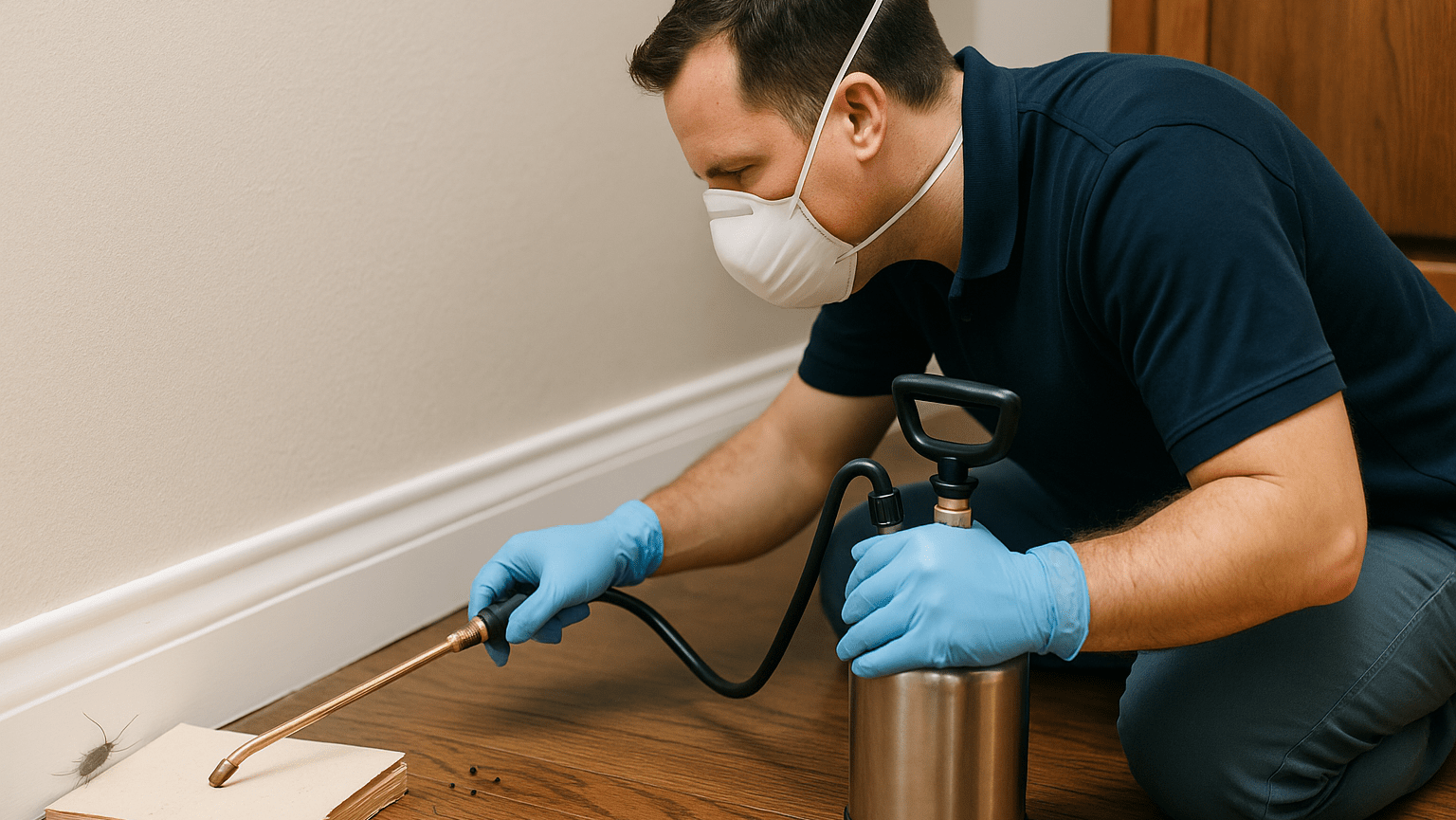Key Takeaways
- Silverfish do not go away on their own—active control is necessary.
- They can live 2–8 years indoors, often hiding in dark, damp areas.
- Silverfish damage books, clothing, wallpaper, and stored food items.
- Prevent infestations by reducing moisture, removing food sources, and sealing entry points.
- Severe or persistent infestations may require professional pest control.
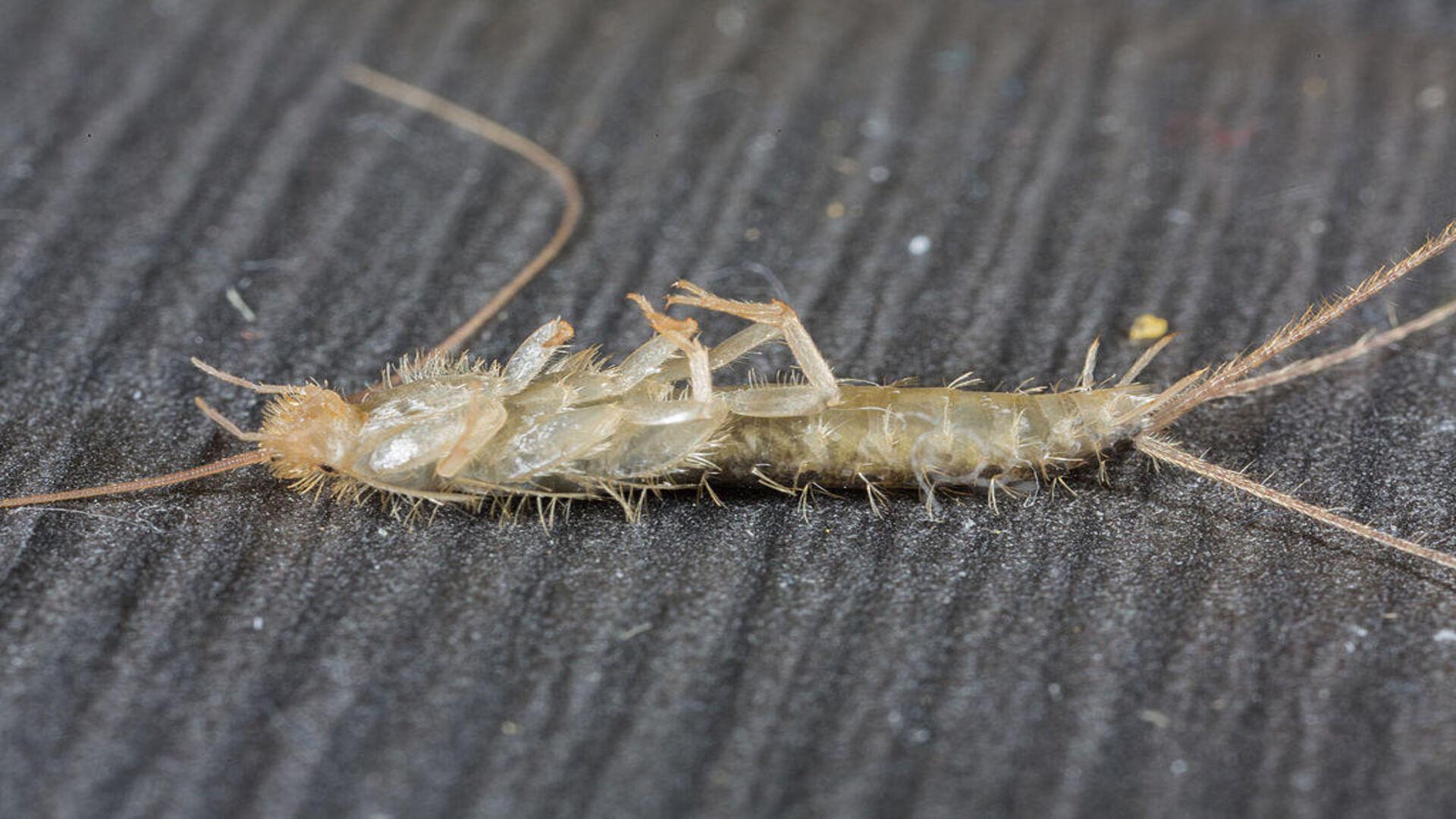 Silverfish are one of the most persistent household pests, known for their fast, wriggling movements and destructive appetite for paper, fabric, and starch-based materials. If you’ve spotted silverfish in your home, you might wonder: Do silverfish ever go away on their own?
The simple answer is no—silverfish will not leave unless you take active steps to eliminate silverfish. These pests are incredibly resilient, capable of surviving in hidden areas for years, and they reproduce steadily if given the right environment. If left untreated, an infestation can lead to damage to books, clothing, wallpaper, and food items, making them a costly nuisance for homeowners.
This article is a comprehensive guide about silverfish infestations, explaining why silverfish rarely disappear naturally, how to identify and eliminate them, and when to seek professional pest control. It also covers preventive strategies for long-term pest management.
If you’re concerned about silverfish invading your home, our experts are here to help. Schedule your Free Pest Inspection Today and let us create a tailored solution to restore your peace of mind.
Silverfish are one of the most persistent household pests, known for their fast, wriggling movements and destructive appetite for paper, fabric, and starch-based materials. If you’ve spotted silverfish in your home, you might wonder: Do silverfish ever go away on their own?
The simple answer is no—silverfish will not leave unless you take active steps to eliminate silverfish. These pests are incredibly resilient, capable of surviving in hidden areas for years, and they reproduce steadily if given the right environment. If left untreated, an infestation can lead to damage to books, clothing, wallpaper, and food items, making them a costly nuisance for homeowners.
This article is a comprehensive guide about silverfish infestations, explaining why silverfish rarely disappear naturally, how to identify and eliminate them, and when to seek professional pest control. It also covers preventive strategies for long-term pest management.
If you’re concerned about silverfish invading your home, our experts are here to help. Schedule your Free Pest Inspection Today and let us create a tailored solution to restore your peace of mind.
Understanding Silverfish Behavior
Silverfish are small, nocturnal insects commonly found in damp, dark spaces like basements, bathrooms, and attics. Understanding silverfish behavior—such as their attraction to moisture, darkness, and starchy materials like paper and fabric—helps you identify and prevent infestations effectively.Do Silverfish Disappear on Their Own?
You might wonder if silverfish will naturally disappear without intervention. Unfortunately, silverfish typically do not go away on their own due to their ability to reproduce rapidly and survive in hidden areas of your home. Without addressing underlying conditions, infestations often persist.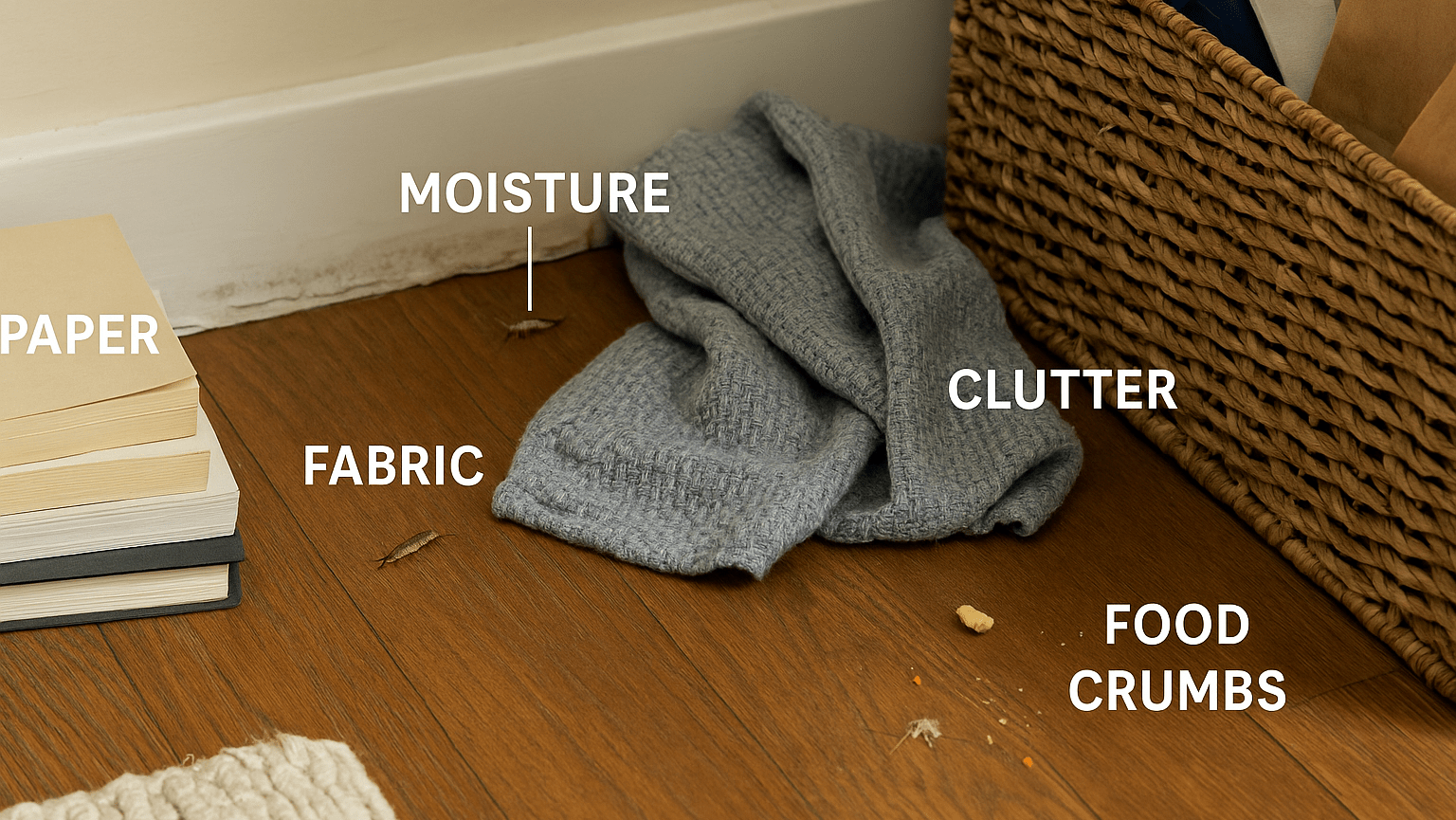

Not getting a solution?
Get your free pest control estimate today!Why Silverfish Stay in Your Home
-
Survive Months Without Food: Even if food sources are scarce, silverfish can persist in your home. Silverfish feed on starches, including flour, paper, wallpaper glue, fabric, and even mould or dead insects.
-
Lay Eggs in Hard-to-Reach Places: Silverfish hide their eggs in cracks and crevices, making infestations hard to detect. They hide in cardboard boxes, bookshelves, closets, and cracks along baseboards.
-
Moisture & Humidity: Silverfish need high humidity (above 50%) to survive, which is why they are commonly found in bathrooms, basements, laundry rooms, attics, and kitchens.
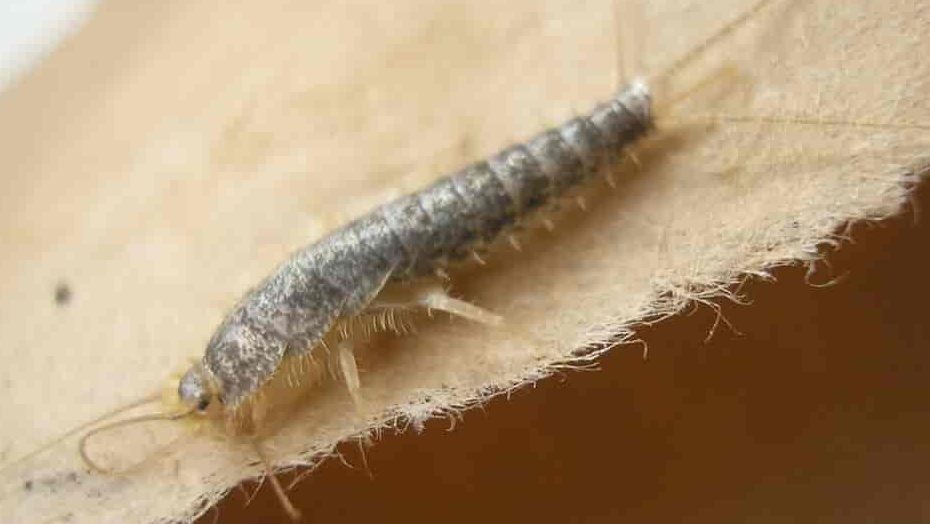
How Long Can Silverfish Live Indoors?
Silverfish can live indoors for several years—typically 2 to 8 years under ideal conditions. Their longevity, combined with their rapid reproduction rate, means infestations rarely resolve themselves naturally. Without addressing the cause, these pests can remain in homes indefinitely.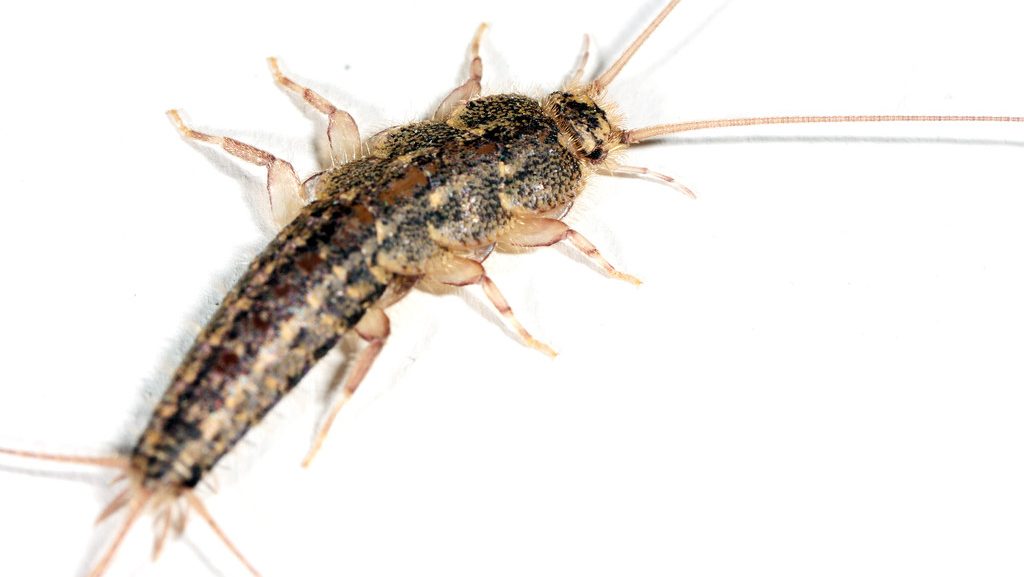
Risks of a Silverfish Infestation
-
Damage to books, wallpaper, and fabrics.
-
Ruined clothing, upholstery, and stored garments.
-
Contaminated pantry goods (flour, cereal, grains).
-
Increased allergens from silverfish scales and droppings.
Natural Factors That May Reduce Silverfish Populations
Certain natural factors, like seasonal weather changes or the presence of predators such as spiders or centipedes, may slightly reduce silverfish populations. However, these factors alone rarely eliminate an infestation completely, especially indoors where environmental conditions remain stable.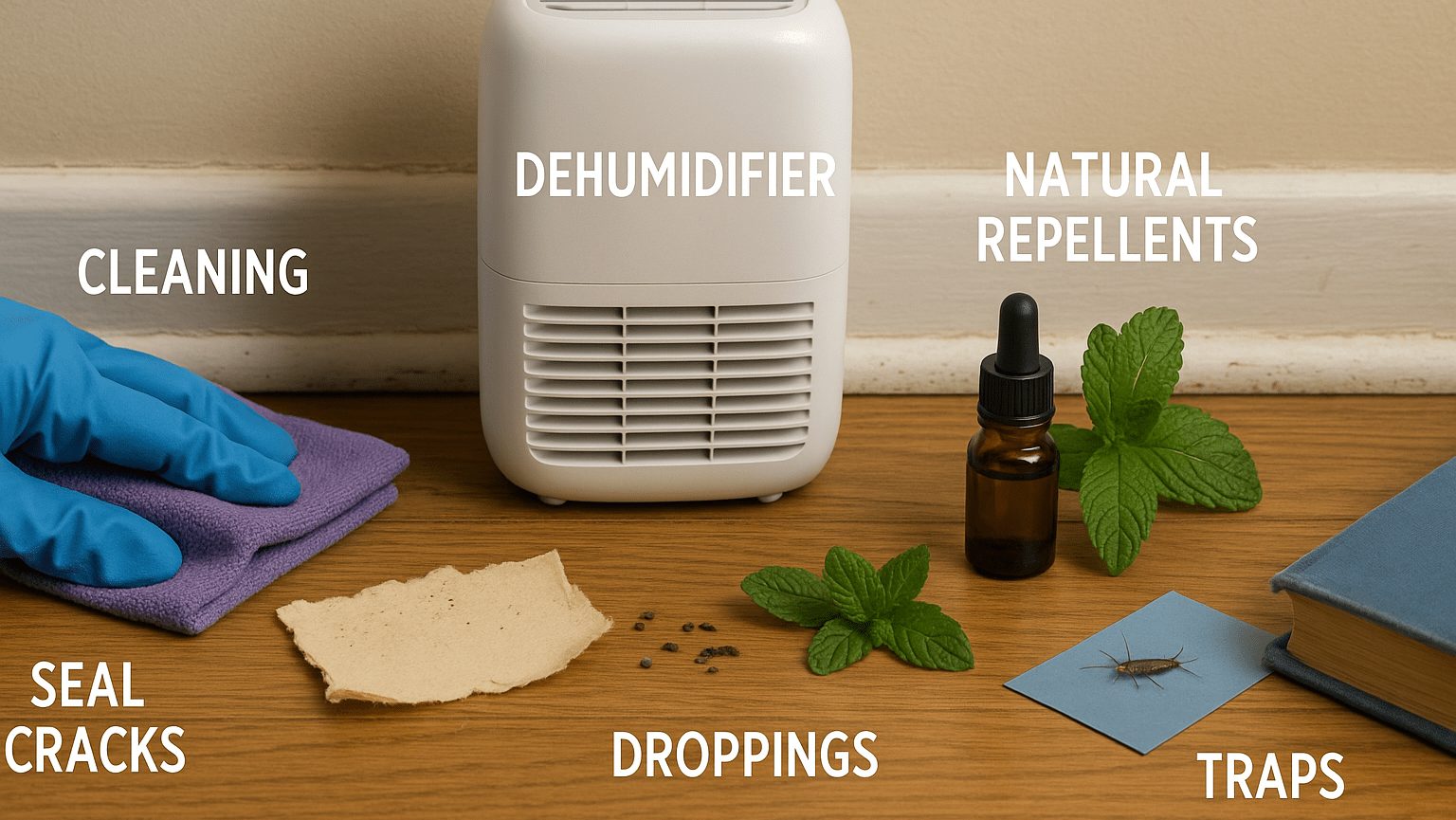
How to Get Rid of Silverfish (Step-by-Step Guide)
Step 1: Reduce Moisture & Humidity
-
Fix leaky pipes, faucets, and condensation issues.
-
Use a dehumidifier in damp areas like basements and attics.
-
Improve airflow with exhaust fans in bathrooms and kitchens.
-
Use moisture-absorbing products like silica gel packs in closets.
Step 2: Remove Food Sources & Declutter
-
Store cereals, flour, and pet food in sealed plastic or glass containers.
-
Dispose of old newspapers, cardboard boxes, and excess paper clutter.
-
Regularly vacuum baseboards, closets, and bookshelves.
-
Wash and rotate stored clothes to prevent fabric damage.
Step 3: Use Traps & Natural Remedies
-
Jar Trap: Wrap a glass jar with tape on the outside. Place a piece of bread or starchy bait inside. Silverfish will climb in but won’t be able to escape.
-
Sticky Traps: Place silverfish glue traps along baseboards and under sinks to catch both adults and newly hatched silverfish.
-
Essential Oils & Natural Repellents: Silverfish hate the smell of cedar, bay leaves, and citrus oils. Place bay leaves in bookshelves, closets, and storage areas to repel them.
Step 4: Apply Insecticides for Severe Infestations
-
Diatomaceous Earth (DE): A natural, pet-safe powder that dehydrates and kills silverfish by damaging their exoskeleton.
-
Boric Acid: An effective insecticide that poisons silverfish when ingested—ideal for cracks and crevices.
-
Professional-Grade Silverfish Sprays: Specialized sprays that kill silverfish on contact and are suitable for treating infested baseboards, corners, and wall gaps.
How to Prevent Silverfish from Coming Back
-
Keep humidity low with dehumidifiers and ventilation.
-
Store books, clothes, and food in airtight containers.
-
Vacuum and declutter regularly to eliminate hiding spots.
-
Use caulk to seal cracks and crevices where silverfish lay eggs.
-
Inspect secondhand furniture and storage boxes before bringing them inside.
Why Silverfish Infestations Often Persist
Silverfish infestations often persist because these insects reproduce quickly, hide effectively in cracks or behind walls, and easily find abundant food sources in homes. Without addressing moisture, food sources, and hiding spots, silverfish infestations are unlikely to resolve naturally.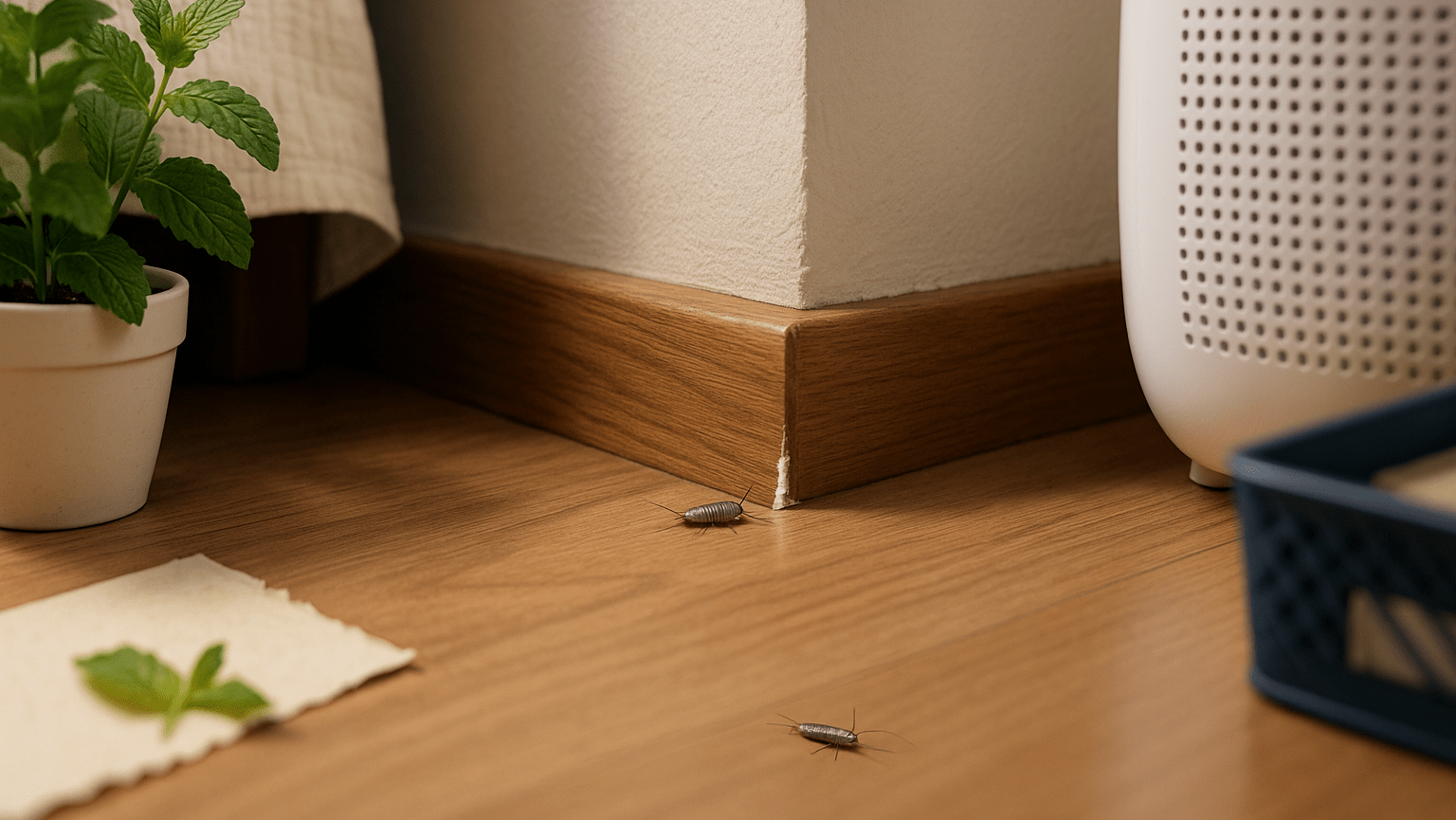
Signs Your Silverfish Problem is Improving
If you notice fewer sightings, reduced damage to paper or clothing, and no new droppings or shed skins, these are positive signs that your silverfish problem may be improving. Consistently low humidity levels and cleanliness are key indicators of successful natural control.When Natural Solutions Aren’t Enough
Sometimes natural methods aren’t sufficient to fully eliminate silverfish, especially if the infestation is severe or persistent. If you continue noticing frequent silverfish activity despite your best efforts, it may be time to consider professional pest control solutions.